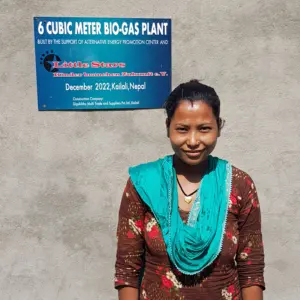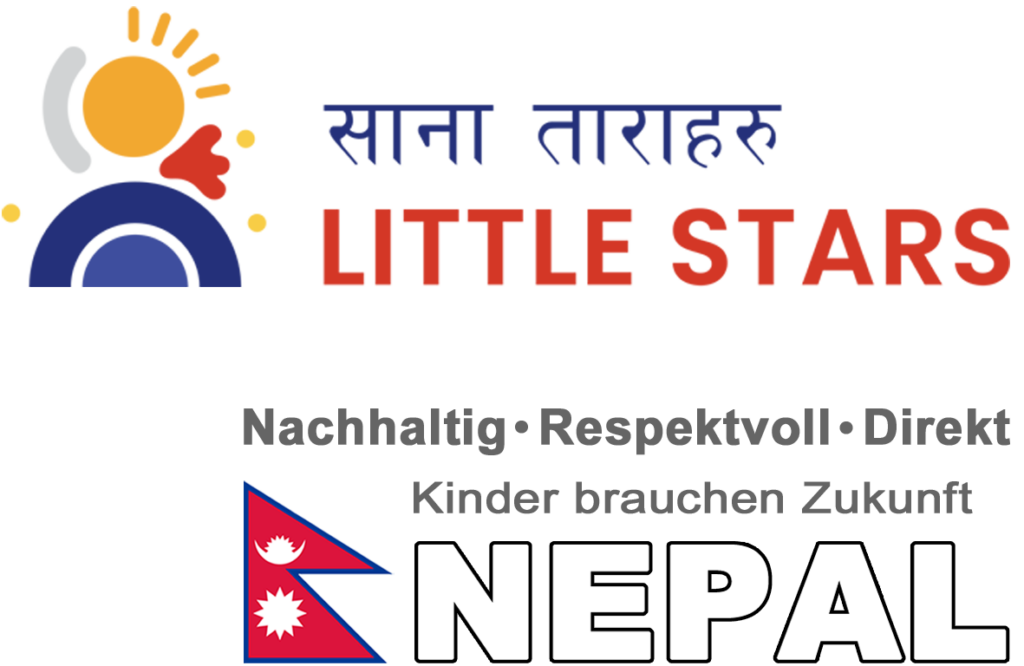Until a few years ago, in many simple mud houses in Nepal, cooking was done on an open fireplace in the house. This meant acrid smoke, watery eyes and health problems. Over time, Little Stars has replaced these open fireplaces with smokeless ovens in more than 500 households, thus providing a better quality of life, especially for the children.
Due to the change in construction of the new earthquake-proof houses after the severe earthquake in 2015, the need for these simple smokeless ovens has gradually come to a standstill. Cooking is increasingly done in an outdoor shelter next to the new house or gas cookers are used.

Little Stars has recently built several biogas plants in a pilot project around our project village Balchaur in the Terai region. The basic requirement for the operation of a biogas plant is that the family has a brick-built toilet and at least one ox or cow in the stable. Then the excrements from humans and animals together are sufficient for a functioning biogas plant for daily cooking for a family of 4 to 6 people.
In some parts of Nepal – and especially in the Terai region – it is difficult and not always permitted to fetch wood for the fireplace from the forest. So “fetching wood” often happens illegally, is mostly done at night by children and is also dangerous. Especially around Balchaur, people die every year when they are attacked by tigers in the forest at night.
With the operation of a biogas plant, dangerous wood fetching is no longer necessary and the air around the fireplace is smoke-free. No soot, no smoke, no coughing. The children’s respiratory system takes on a whole new quality. Deforestation is avoided and the CO2 balance of the entire region changes considerably for the better.
The families with the new biogas plants have also reported that the food no longer burns so badly, which is seen as a great advantage in addition to the enormous time savings. As the pilot project was very successful, Little Stars has built 24 more such biogas plants for families in this region. A brick-built toilette is usually not available and is therefore always included. Little Stars can build such a biogas plant with a toilet for around 300 Euros. Donations are always welcome!


